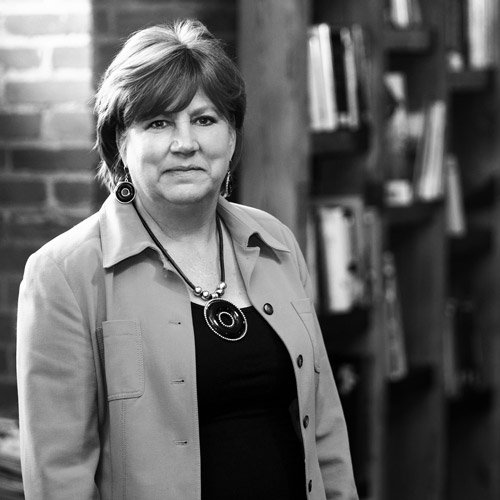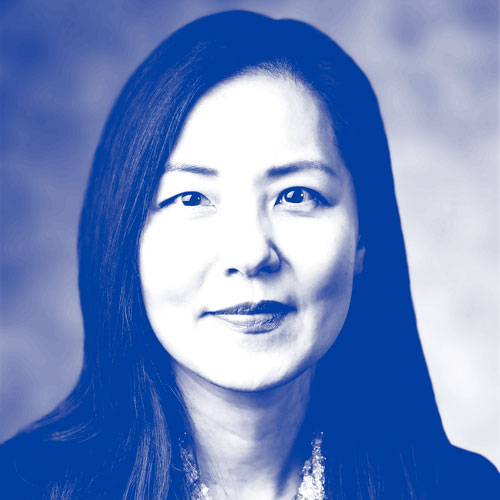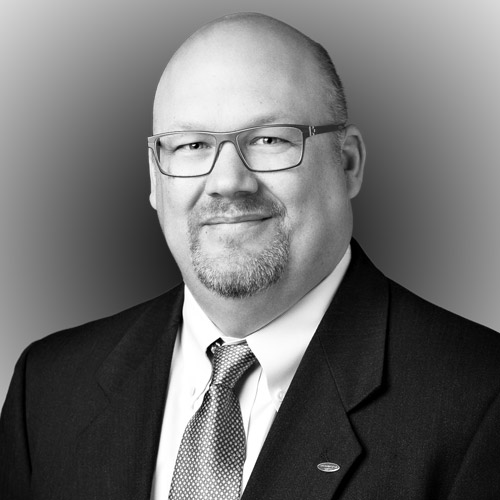Smart, curious people are encouraged and equipped to become multidisciplinary strategists at Bozell. The advertising agency’s Twitter bio says it all: “We’re nerds and geeks with a weird, obsessive love for advertising.” Bozell CEO Kim Mickelsen, who says she developed a passion for marketing early in life, joined the firm as a senior account supervisor in 1990, and she has been there ever since. “We really have the best of both worlds,” Mickelsen says. “We have a history in the big leagues, but with the heart of a startup.” Founded in 1921 by Leo Bozell and Morris Jacobs, the creative marketing communications company indeed has a storied history. Bozell is often recognized by such slogans as, “He ain’t heavy, Father, he’s my brother”—used in an early campaign for Father Edward Flanagan’s Boys Town—and, more recently, “Pork: The Other White Meat” and Mutual of Omaha’s “Wild Kingdom.”

After a long series of mergers and acquisitions—at one point, the firm was part of Lorimar’s global network of thirty-five offices and affiliates—Mickelsen was one of four executives to negotiate a buyback in 2001. Bozell has remained an independent, single-office shop since then. In 2012, Mickelsen and business partner Robin Donovan became the sole owners of the business, earning a Women’s Business Enterprise certification from the Women’s Business Enterprise National Council. The credential, intended for businesses that are majority owned, operated, and controlled by women, has only been granted to 11,000 companies nationwide. “Robin and I are obsessive about nurturing a culture that is collaborative, results oriented, and creative,” Mickelsen says.
Yet, until a few years ago, Mickelsen had never envisioned a successful advertising campaign about—or for—the living dead. The Omaha, Nebraska-based agency developed a wildly successful marketing campaign for regional chain Westlake Ace Hardware in 2011, framing its stores as “Zombie Preparedness Centers.” The team had found the data, lots of it. Mickelsen’s team had noticed that Midwesterners spent a lot more time doing online searches for terms related to zombies than did people in other regions, exemplifying Bozell’s impressive ability to quantify the marketing impact to deliver results. In just fifteen days, Bozell’s team rolled out a monthlong multiplatform campaign that culminated in a homepage takeover on October 31. The campaign went viral, racking up 45,000 online mentions from 142 countries. “They got e-mails from places like Australia saying, ‘Gosh, I wish my hardware store was this cool,’” Mickelsen says. “That’s not a sentence you see very often.”
Since then, other highly successful campaigns have been born of this fusion of data and ingenuity. Bozell created the TV commercials and online films for First National Banks’ “Memorable Firsts” campaign, and it also constructed a nostalgic sandlot in downtown Omaha to promote the College World Series, which tracked more than 14,000 website hits in 2014. All of this success starts with getting the right people in the room, according to Mickelsen. “One of our hiring criteria is insatiable curiosity,” she says. “We hire smart people and let them do their jobs. Robin and I have the mind-set that we’re not the bosses; we’re the mentors. Our job is to try to bring out the best in every employee.”
It fosters remarkable results. Bozell produced a traveling road show for First National Bank last summer that included an RV with a studio where the team recorded people’s stories and provided multiple Oculus Rift virtual-reality experiences. It also launched #SupportBlue for the First Responders Foundation, which has taken on a life of it’s own and is now used all over the United States to support police officers and firefighters.
Always on the pulse of trends, Bozell’s team does not shy away from new ideas. At its core, Mickelsen’s leadership strategy reflects this simple idea. “Embrace change,” she says. “Kiss it on the lips. We don’t believe that just because it worked yesterday, it will work today—it doesn’t work that way anymore.” Mickelsen knows this firsthand. A longtime tech enthusiast, she created one of the first in-house digital divisions (then called “interactive”) at a full-service advertising and marketing agency. Bozell’s collaboration with a sister company on the West Coast had resulted in a project that started as a debacle, but when Mickelsen realized that they needed to stop outsourcing digital work, it became a transformative moment for the agency. “I hired a programmer, and then I went back to school to understand more about programming,” Mickelsen says. She took night classes not because she wanted to be a programmer, but because she needed to understand enough of the technology to think about it from a business perspective.
Bozell, under Mickelsen’s direction, has maintained a huge commitment to training, developing a holistic approach to cultivating employee skills to foster multidisciplinary collaboration. To break down organizational silos that kept employees separated by skill set, Bozell moved to an open-plan office in 2010. “We knew that we needed to change the way in which people thought about their own jobs,” Mickelsen says. “You may be a skilled illustrator or copywriter, but today you need to think of yourself as a strategist first. We help employees see beyond their expertise.”
Bozell’s internal training program, Close to the Customer Academy, also is not about learning any particular tool. “It’s about training people to suss out what is the best solution and not fear anything that’s out there, even if they’ve never done it before,” she explains. Employees are encouraged to “keep their skills fresh,” she says, which might involve classes on social media strategy, web coding, or high-end guerrilla marketing. Based on this collaboration and a keen ability for data analysis, the agency’s successful campaigns throughout the decades have proven Bozell’s commitment to delivering measurable results through exceptional creativity.

